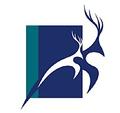EAL News

You may have heard about EAL but what does it mean?
EAL stands for English as an Additional Language, and it is a very popular subject at Craigieburn Secondary College from Year 7-12.
Who teaches EAL?
At CSC, we currently have four teachers teaching EAL classes: Ms. Antonas, Dr. Ibrahim, Mr Chopra, Ms. Goodall. These teachers have considerable experience in teaching languages both locally and overseas. Ms. Antonas is the EAL Learning Specialist and the EAL Learning Area Leader. The EAL Office is in portable 9. The EAL teaching program is heavily supported by the school’s excellent team of Multicultural Education Aides: Ronique, Fawzi, Shireen, Saima and Saad. Members of the MEA team come from a variety of cultural backgrounds, and they work to support all our learners and staff. The MEA team office is in portable 7.
Have you ever wondered who studies EAL and why?
Many students from non-English speaking backgrounds study EAL. The course program is designed to support students to build their English language skills until learners join the regular English classes.
At Craigieburn Secondary College, we have EAL students from around the world. Our EAL students come from a broad range of cultural backgrounds and countries including Iraq, Syria, Samoa, Jordan, Nepal and India.... These students speak a wealth of different languages in addition to English. Indeed, the profile of EAL learners is extremely varied but, whatever their story, something has led their families to settle in Australia.
Recently, one of our Y12 EAL students was awarded a scholarship and the CSC community celebrates his achievements.
Naramsin shares his story here: My name is Naramsin Shmouni, I was born in Syria. In 2014, I left Syria with my mom and 3 sisters to Lebanon at the age of 9 years old.
We could not come back to Syria because ISIS invaded our village and captured everyone in the village, except for my dad. He was hiding for 4 days before getting captured, at first ISIS killed 3 people from my village then demanded money from Christian churches and they said if they didn’t get the money the others will face the same fate and the video was published on Facebook of the 3 people being executed. Then the churches start gathering money and paying ISIS every month but only a group of people would be released for each instalment paid, for about 9 months until everyone was released.
At the time, my mum, two sisters and I lived with my grandparents for about 2 years. I didn’t see my father for 2 years - we only communicated once because in Syria they didn’t have good connections so it would take months of weeks to make a phone call. It was very hard for me emotionally.
From 2014 until 2019, I didn’t go to school in Lebanon for 5 years which have affected me a lot now. I found studying hard and makes me feel disadvantaged comparing to other students in my class and my friends, especially with my hearing disability.
My career goal is becoming an engineer because all I’m interested in is technologies and hopefully, I can create some new technologies that could benefit other people around me.
The challenges I had to overcome was English as a third language after Arabic and Assyrian. Which made meeting new people and understanding very difficult for me.
As a EAL student, from my experience I recommend for new arrivals to engage with other students even if it difficult to communicate it will help you improve and adapted to the language bit faster. Also ask help from teachers they will support you and understand you, even if you’re calling out random words.
In 2023 I applied for SSI Allianz Refugee scholarship which was financial support that helped me with studying resources. I was successful so I was invited to attend a ceremony where I met new people who experienced something like what I’ve been through. It was fun and exciting.
